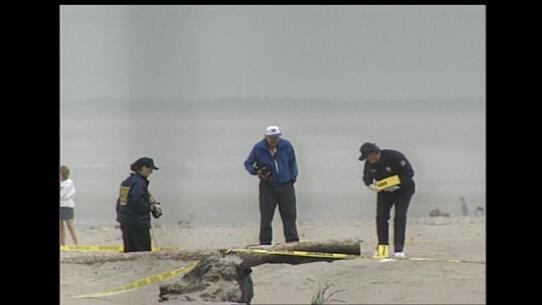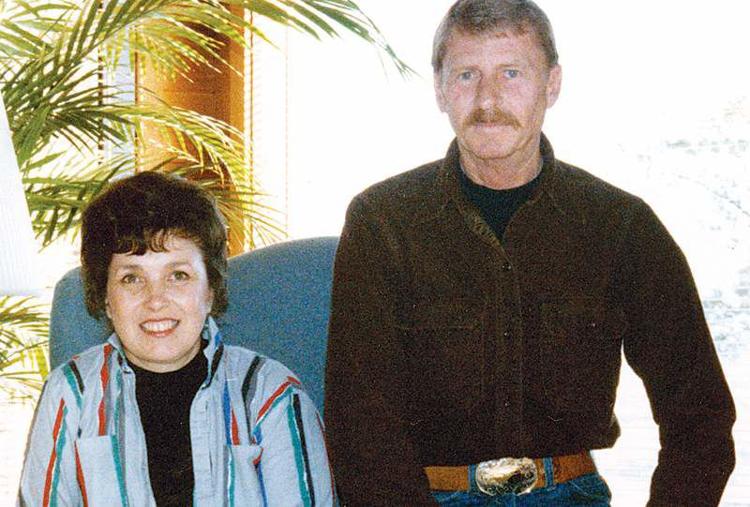|
Guest column by Joshua Marquis
Bend Bulletin April 2, 2023 One of the best and most common sense gun laws we have prevents felons from legally buying a firearm. Yet Oregon state Sen. James Manning, D-Eugene, in an op-ed published on March 14 in the Bulletin, urged support for automatically expunging criminal records for many serious crimes — as if they never happened. Good news if you’re a felon and want to legally buy a gun. Manning calls Senate Bill 698 a “second chance” for criminal offenders. I call it bad legislation, particularly at a time when Oregonians are on edge over gun violence. More than anything, S.B. 698 is an insult to all crime victims. If your family member was killed by a drunken driver, or your good credit history destroyed by an identity thief, or the security of your home violated by a burglar — those offenses will live on in your life. While some supporters claim they will “later amend the bill” as it currently stands, it will “auto-erase” crimes like rape in the second degree, and sexual abuse in the first degree. As currently drafted, this legislation would “auto expunge” the crime of a 40-year old man who sexually molests a 13-year-old! But under S.B. 698, the offender is automatically forgiven, presumably so he or she can get on with their lives. They don’t even have to suffer a guilty conscience. It’s like they have a constitutional right to be forgiven. If passed, this bill will automatically expunge over 90% of all criminal convictions by my calculation, including crimes such as manslaughter, sexual abuse, domestic violence, burglary. It is estimated that as many as 300,000 offenders convicted of misdemeanors and most felonies could benefit from this legislation. Expungements already exist. In fact, as a former district attorney, I signed off on many expungements. However, this bill does not even require the person with a felony record to go through the basic process by applying, getting fingerprinted and submitting an affidavit to a judge to which the local DA and the victim could respond. (The fingerprint requirement enables the courts to know if the person already has a long criminal record.) Manning’s bill also would waive all fees paid by the offender and create an unprecedented system that could be accurately termed as “automatic expungement.” The Oregon Justice Department would identify which crimes qualified for expungement and make them automatic. Mannig co-authored his op-ed with former Georgia Congressman Doug Collins, a Republican, and sought to strike a bipartisan tone. They also shared a military connection — Manning a former military officer and Collins a former Air Force chaplain. They said the military would dole out “tough accountability” for “poor behavior” and then give service members a second chance. They suggested that the civilian criminal justice system should be equally generous with second chances. They ignore that many of the crimes that would be automatically expunged under S.B. 698 are far more serious than mere “poor behavior.” They also don’t appreciate how many crimes in the civilian world — especially in Oregon — don’t result in tough accountability. There are criminal offenders in this state who suffer few consequences. In fact, offenders have been the recipients of the legislature’s increasingly progressive criminal justice reforms. If Senate Bill 698 passes, Oregon will have one of the most radical versions of “expungements” that exist anywhere in the United States. It represents a repudiation of any progress that has been made in truth in sentencing or victims rights. Now, we are facing a law, that if passed, would make Oregon the single most felon-friendly state in America for wiping out serious criminal convictions. ###END Guest Column: Bill in the Legislature is an insult to crime victims | Opinion | bendbulletin.com
People should write my successor, DA Ron Brown, and Governor Kate Brown to express their horror at the attempt by Jesse McAllister to get his sentence commuted. He murdered Brook Goza and Frank Nimitz on the Seaside beach in July 1997. He and co-defendant Brad Price fled to Mexico for a year. When McAllister was arraigned I was ready to seek the death penalty, but he offered to plead straight up to True Life, no possibility of parole.
 with Pamela Fitzsimmons of heldtoanswer.com, Portland Apple store, Aug 6, 2020 with Pamela Fitzsimmons of heldtoanswer.com, Portland Apple store, Aug 6, 2020 3 / WHAT NEXT? Things to look for in the 2021 regular Oregon legislative session: The coup de grace to the rest of Measure 11. Measure 11 no longer requires a two-thirds legislative majority, and the legislature will never refer it back to voters, who would very likely re-affirm the measure for the third time. Voters who have had a family member or a friend murdered know that there are some very bad people in Oregon, and we're all better off if they're kept away from us. Those very bad people can be released after serving only eight years of a supposed "life sentence." Eight years for killing somebody for no good reason. Even worse, if only for sheer numbers, rapists and child molesters could get sentences as low as probation only, no prison. Even those sentenced to prison will likely be released within two years by Parole Boards, accountable to nobody but the Governor who appoints them, and hearing only information about how well the person is doing in the hyper-structured environment of the Oregon prison system. Racial inequities in sentencing will start to rise again as judges, many appointed by Kate Brown, will be sympathetic to young men who are vouched for by their wealthy parents, school leaders, and clergy. Exactly the way the same groups of people rallied to save Randy Guzek, who butchered Rod and Lois Houser in their home at 3 a.m. in the summer of 1987. But this time, it's likely to be worse than it was when many of us were younger and fired up by these injustices. We are at a dark intersection of political correctness and overwhelming white guilt about racism that somehow translates into hatred of all law enforcement and a call to repeal 30 years of true reform that brought justice and even equity to many crime victims who, far out of proportion to their number, are women, children, and people of color. ###  downtown Portland, Aug 6, 2020 downtown Portland, Aug 6, 2020 Mary Ann Murk, an attorney in Astoria, Oregon, is probably the best and savviest advocate a person facing a mental commitment could have. She writes honestly about the cruelty that some allegedly mentally ill persons are subjected to, and the costs of and emotional burden to the law enforcement officers charged with finding some place for the person to land. These people haven’t been charged with a crime. Their victims are often family members who want them to get help, not spend time in jail. Oregon’s law on allegedly mentally ill persons (colloquially known as AMIPs) has nothing to do with legal insanity or being unfit to stand for trial. The mental commitment process isn’t part of the criminal code. It’s an attempt to provide a constitutional structure for people suffering such severe mental illness that they pose an immediate physical threat to themselves or others, or who won’t provide for such a basic need as eating.
These cases are heartbreaking. They are usually brought by concerned family members, rarely by the cops, never by the district attorney’s office. Here’s a fairly typical example: A family member repeatedly calls Clatsop Behavioral Healthcare (CBH) because their adult son is convinced outside governments are communicating with him through microwaves that only he can hear. One day he threatens to blow up a local government building to stop the voices. He yells, screams, takes out the kitchen knives and begins cutting himself. A crime hasn’t been committed. The police won’t engage, even if the family says they’re afraid of what the son might do. CBH will send one or two case workers to assess the situation and write a report. If they believe the son meets the qualifications, CBH will apply to the court for an order. If the judge believes the person qualifies under Oregon law, she will sign a warrant of detention. At this point the sheriff’s office is delegated the responsibility of transporting the person to whatever mental hospital between Coos Bay and the Idaho border is available. Let’s say the person is “decompensating” -- falling apart -- in a store. Making a terrible and frightening scene but not destroying any property. The store is likely to call the police. The police will likely come to ensure a crime hasn’t taken place. This is one of the social services we’ve come to expect the police to provide. They will try to “de-escalate,” or calm down, the person, and possibly suggest he leave the store. Police are trained in de-escalation. The officer is there to make sure no one is getting hurt and that the guy doesn’t have a weapon. Once the officer has assured that, she will call CBH to have that agency come and assess the person. Often CBH doesn’t or can’t immediately respond, so the officer has to stay around to make sure the person is safe and that the situation doesn’t escalate. If the officer can articulate an imminent danger, she can hold the person temporarily, usually in the back of the police car, until CBH arrives. There are many scenarios. Some are worse -- for everyone -- than others. The important point here is that police don’t investigate and make judgments about mental illness. Mental health workers do. The budget of CBH is larger than the sheriff’s office and the district attorney’s office combined. (All CBH funding comes from the state and some federal sources.) And yet we definitely need more funding for mental health. We also need the police, and probably more funding for them, at least in Astoria. I can guarantee you that if a family member calls CBH and says their son has lost his mind and is waving a butcher knife around, CBH is going to call the police, and wait for officers to respond before going in themselves. (That’s one other reason why officers wear 40-pound vests: to prevent themselves from being stabbed in the chest.) No mental health facility for those who need temporary commitment is available anywhere on the north coast. Semi-independent housing was closed years ago. Drop-in crisis services have been dramatically reduced. Neither our hospitals nor our jail have a room for people whose primary issue is acute mental illness (despite years of attempting to convince both CMH and Providence Seaside to do so.) The Oregon State Hospital was massively downsized over a decade ago. The only options are within a small patchwork of hospitals ranging from Coos Bay, Corvallis, Portland, and Ontario. A shackled 9-hour ride in the back of a sheriff’s patrol car is demeaning and terrifying, as most of the people are in active psychosis and believe they are being abducted by aliens or sent for medical experiments. They are clearly suffering and usually haven’t committed a crime, and certainly haven’t been charged as yet. Nor should the sheriff have to engage in this sometimes dangerous and almost always unpleasant duty. What can we do? Mandate that all hospitals have the ability to do psychiatric evaluations every day of the week. Create a treatment and evaluation facility close enough to avoid the long ride. Assign transport to a non-police agency. But consider what might happen when the allegedly mentally ill person attacks the driver or bolts the car on the Santiam Pass in mid-winter. Once social workers have the training, legal authority, and desire to run after and restrain someone in the grip of a psychosis, they might as well be police officers. There are many dedicated people working in the field, but we fail the profoundly mentally ill. The police are the least culpable of all. Some proponents of Defund the Police want to refocus how police work is done. Many police departments themselves might welcome this because many consider the proper work of police to be detecting and apprehending criminal suspects, not doing social work. Some proponents, like the city leaders in Minneapolis and Seattle, have made clear they seek abolition. In practical terms that will mean that unless an actual crime is underway, and likely a violent crime, police officers will respond only to purely criminal calls. That, of course, does nothing to avoid confrontations with robbers high on meth, and men with anger management problems who’ve beaten their girlfriend to a bloody pulp. A serious car crash might be ignored absent immediate evidence of drunk driving. Police reforms, treatment of the mentally ill -- these issues should go well beyond politics. The Great Cauliflower, as I’ve often called Reagan, didn’t open the mental institutions on his own. Nor did Nixon. The call to deinstitutionalize came well before either of these conservatives, and arose from more liberal outrage. Ken Kesey’s “One Flew Over the Cuckoo’s Nest” was published in 1962. In 1963 Kennedy proposed and signed into law the “Community Mental Health Act,” which would have built local mental health facilities to replace institutions. The Act was poorly funded due to the costs of the Vietnam War. Medicaid’s passage in 1965, signed into law by Lyndon Johnson, incentivized moving patients out of institutions. Just as former speaker of the house Tip O’Neill said, “All politics is local.” By extension, so are the solutions. ### "Parole board : Man convicted in Terrebonne couple's 1987 killing must serve 7 more years," by Barney Lerten, published May 11, 2020, 9:52pm, ktvz.com
SALEM, Ore. (KTVZ) -- One of two men convicted in the brutal double-murder of a Terrebonne couple nearly 33 years ago has lost his bid for immediate release from prison, as the state parole board on Monday said he must remain behind bars for nearly seven more years. Late last year, the state Board of Parole and Post-Prison Supervision had cleared the way for the eventual release of Mark Wilson, now 51, by finding he's "likely to be rehabilitated." Wilson was 18 in June of 1987 when he shot Rod Houser, 53, 20 times with a rifle on the front porch of the couple's home in the middle of the night. Co-defendant Randy Guzek shot Lois Houser, 49, with a revolver inside the home after finding her inside screaming at the top of a staircase.restitution or reparations -- and even if they could, that his "recent false accusations against a victim's family member" weigh against such a finding. Authorities said the pair then looted the house and tried to make it look like a cult killing, leaving a Bible on Houser's chest and cutting his neck before fleeing. Wilson confessed and pleaded guilty to aggravated murder and felony murder. He was sentenced in 1988 to two consecutive life terms with the possibility of parole. Guzek was convicted in the killings and remains on Oregon's Death Row. Several members of the victims' family argued Wilson should serve 40 years. The parole board issued a decision Monday that set Wilson's release for Jan. 9, 2027, just shy of 40 years after the killings. In its five-page "action form," the parole board said it did not find Wilson's efforts toward rehabilitation or to help identify other victims of his past burglaries to be restitution or reparations -- and even if they could, that his "recent false accusations against a victim's family member" weigh against such a finding. ---- Wilson decision 2020 Download ----- According to The Oregonian/OregonLive, a lawyer for the family said Wilson falsely claimed Rod Houser's brother was, among other things, an associate of a parole board member. Deschutes County District Attorney John Hummel had drawn criticism from the victim's family for recommending Wilson get parole, though the DA claimed he was only upholding the deal made when Wilson pleaded guilty and agreed to testify against Guzek. Dylan Arthur, the parole board's executive director, told the newspaper Wilson can seek an administrative review of the board's decision, if he believes it violated its own rules. He can also seek a reduction of up to 20 percent of the time he's already served, equal to a little more than six years. But Arthur said he would need the support of prison officials to seek a reduced sentence -- and even if he sought that, 'the board is highly unlikely to give a 20 percent reduction," based on recent cases. Hummel provided to NewsChannel 21 this statement on the decision: "I commend the parole board for the thoughtful and thorough attention they provided to this matter. As I argued in the brief I filed, Mr. Wilson’s request for immediate release should be rejected, and the board did so. "Unfortunately for everyone involved, this is not the end of the matter. Mr. Wilson has a right for an administrative appeal, and if he is not satisfied with the result, he can appeal in the courts. And regardless of the outcomes of those appeals, he is entitled to a review hearing in five years, and then three years after that. "The bottom line is that this ruling does not stop the hell that the Houser and Shirts families continue to endure. Hopefully, though, it brings them a bit of calm for the next few years," Hummel concluded. Former Clatsop County District Attorney Josh Marquis, previously the Deschutes County prosecutor in the Randy Guzek case, as well as his several retrials, called the parole board's decision "utterly unexpected, great news," considering its finding last fall regarding Wilson's potential rehabilitation. Marquis noted that Wilson had agreed to serve 40 years in prison "when he agreed to tell the truth about how he and Randy Guzek slaughtered the Houser family." ### |
JOSHUA MARQUIS on
criminal justice, animal welfare, and the nature of the relationship between popular culture and the law. Archives
March 2024
See the Archives page for an index of all posts, including those prior to January 2019.
Categories |


